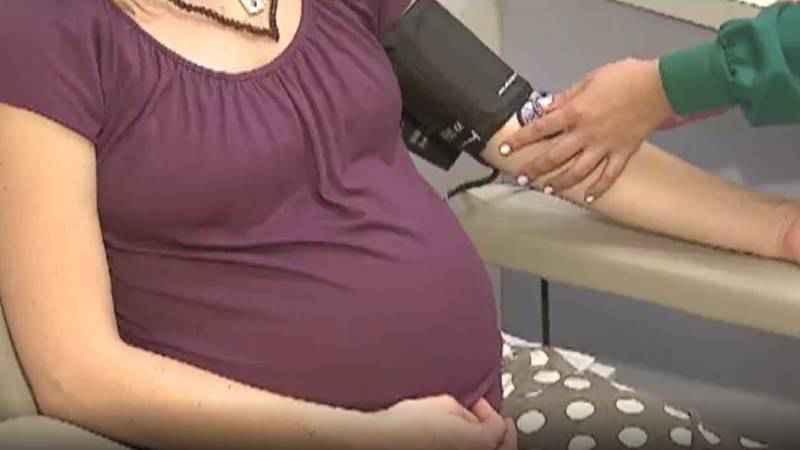New study to look at how COVID-19 during pregnancy impacts babies
[anvplayer video=”5068309″ station=”998122″]
A new study by the National Institutes of Health is hoping to uncover answers about how COVID-19 during pregnancy may impact the unborn baby.
NIH plans to follow 1,500 pregnant women with COVID-19 and their children for four years.
Researchers will periodically evaluate the children to see if they develop neurologic or cardiovascular abnormalities. They will also assess the mothers for lingering side effects of the virus, known as long COVID.
Women who tested positive while pregnant, like Brooke Smith of Rosemount, hope it will provide clarity on a subject that is still largely a mystery.
Smith tested positive for COVID-19 the same day she found out she was pregnant in the summer of 2020.

[File]
"I had the typical cough, sore throat symptoms," Smith explained.
She said she tested positive again the day she went into labor.
"When I got to the hospital, they did the routine COVID test," Smith described. "When the nurse came in, she was in full garb and she’s like, ‘You tested positive.’ And I was like, ‘What? I’ve already had COVID and recovered. I’ve had a bunch of negative tests since the first time I tested positive.’ I was really shocked."
Smith delivered a healthy baby boy named Gordon, but she had many questions about her COVID diagnoses during pregnancy.
"One of the biggest questions was, ‘Does this mean my baby has had it? Will he be born with COVID? Will he be born with antibodies? Would this cause any complications throughout pregnancy? If there are any developmental differences that come up with the babies?’" Smith said.
Dr. Ryan Loftin, president of Minnesota Perinatal Physicians, said he hears these types of questions every day.
Loftin has cared for pregnant women during the pandemic at The Mother Baby Center locations in Minneapolis and St. Paul, a partnership between Allina Health and Children’s Minnesota.
"I think this is really important because there’s so much we don’t know about the impact of viral illness," Loftin said. "We have concerns about what could happen to a developing fetus and we don’t have all the answers."
He said pregnancy is a unique circumstance when it comes to sickness and recovery.
"The mom and the fetus are very much a system that interacts with each other. What happens to mom can affect baby and what happens to baby can affect mom," Loftin said. "If you go back to the 2009 H1N1 pandemic, that really impacted pregnant women much worse than anyone else. So the concept that a virus could impact pregnant women worse is really not new to us."
He said, while long-term effects are unclear, there is some data on short-term results of COVID-19 on pregnancy.
"We do know that COVID causes more harm to women who are pregnant and they’re at more risk for severe infection. With severe disease, we are concerned about risk for preterm birth," Loftin explained. "We know the placenta can be infected and that can have some concerns, potentially for inflammation and what could happen with fetal growth. Fortunately, what we know about COVID so far is the rate of infection of the unborn baby is very low."
Smith said she hasn’t seen any developmental issues with Gordon, who is now 8 months old. She wonders if there may even be some benefits to contracting and recovering from COVID-19 while pregnant.
"With their immune systems, are they better protected against the virus because they were exposed to it in utero? I guess that would all be interesting to find out," Smith said.
While the data will take years to gather, Loftin hopes the new NIH study will help inform doctors down the road.
"The more we know, the more we are able to be aware of what possibilities are there that we need to be looking for so that we can help find where there may be issues and intervene early for these children," Loftin said.